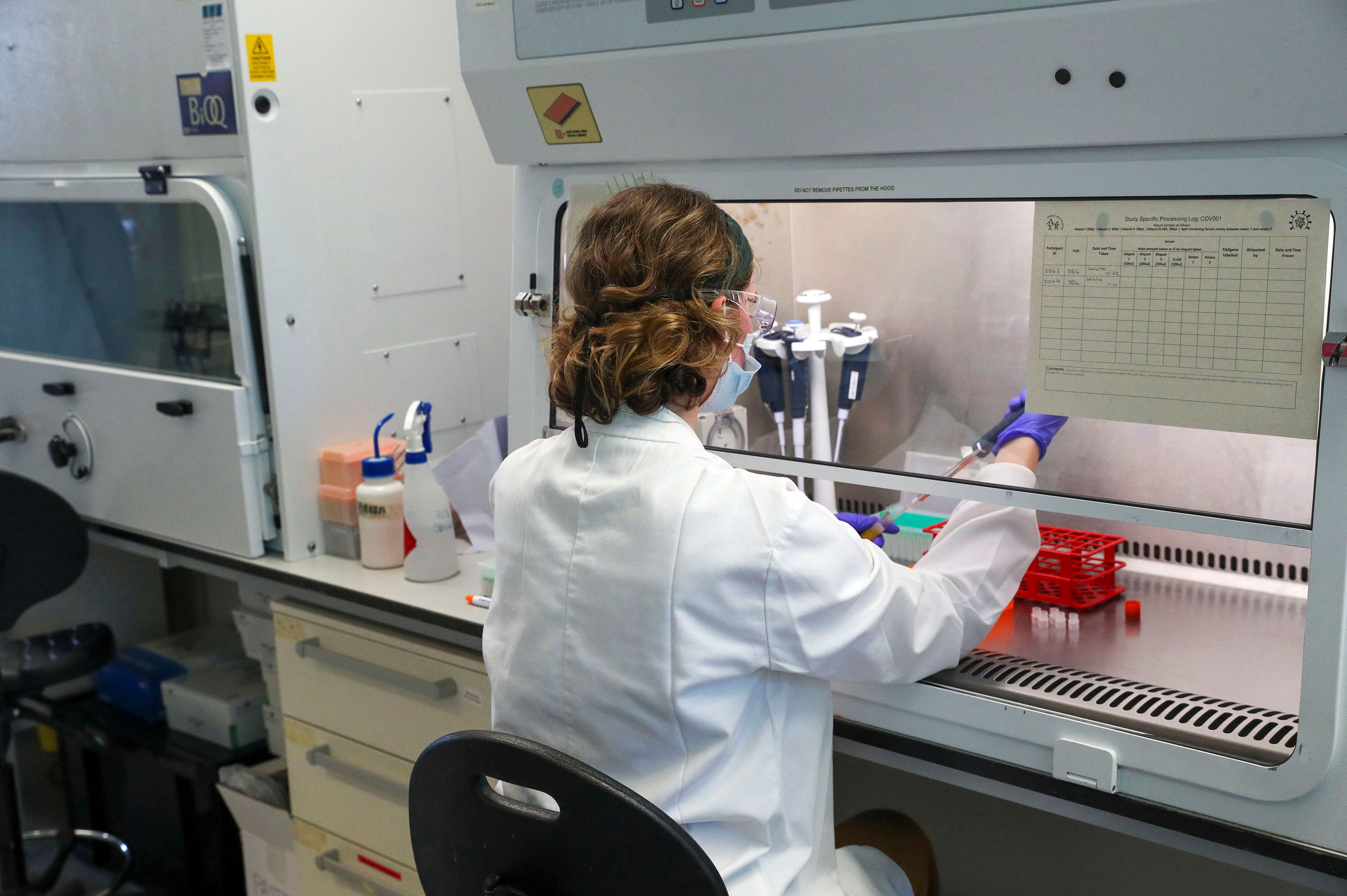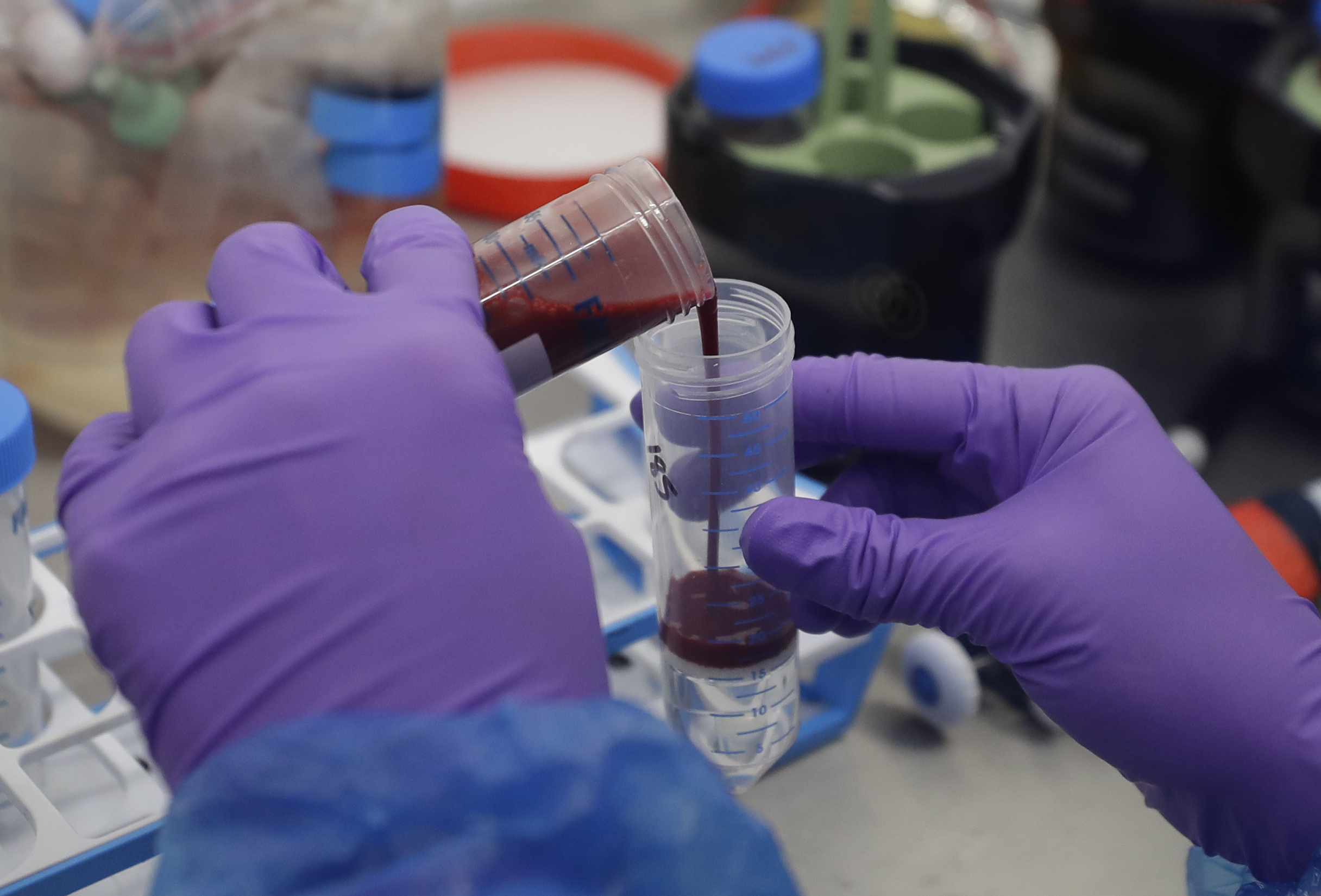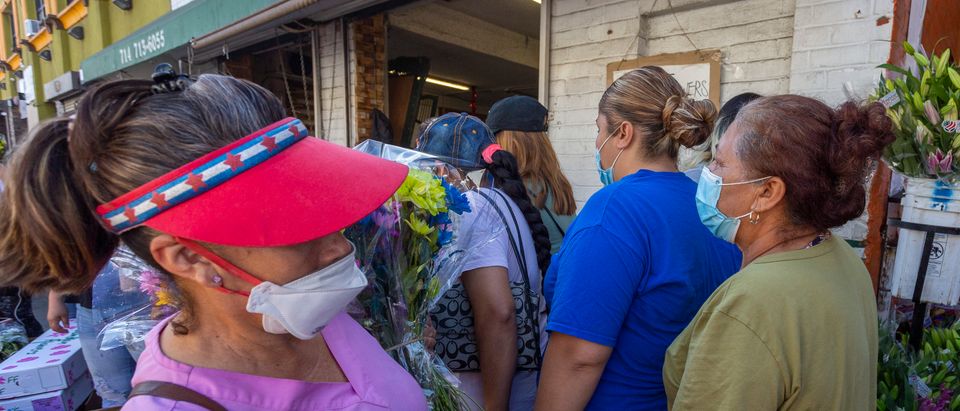A study released Saturday by King’s College London shows that people may lose their immunity to COVID-19 within months and could be susceptible to reinfection on a yearly basis.

A scientist is pictured working during a visit by Britain’s Prince William, Duke of Cambridge (unseen), to Oxford Vaccine Group’s laboratory facility at the Churchill Hospital in Oxford, west of London on June 24, 2020, on his visit to learn more about the group’s work to establish a viable vaccine against coronavirus COVID-19. (Photo by STEVE PARSONS/POOL/AFP via Getty Images)
Scientists at King’s College London analyzed the amount of antibodies in 90 patients and healthcare workers at Guy and St. Thomas’ NHS trust, per the study. The analysis found that antibody production peaked three weeks after symptoms began and then declined rapidly. (RELATED: Phoenix-Area Hospitals Run Out Of Morgue Beds As Coronavirus Deaths Surge)
The study found that 60% of patients developed a “potent” response with antibodies at the peak of their infection with the virus, but only 17% retained the potency three months later. Antibody levels dropped so sharply in some patients that they became undetectable.
“People are producing a reasonable antibody response to the virus, but it’s waning over a short period of time and depending on how high your peak is, that determines how long the antibodies are staying around,” Dr. Katie Doores, lead author on the study, told The Guardian.
Doores also told The Guardian that a vaccine for the virus might also potentially fall short after a few months. “People may need boosting and one shot might not be sufficient,” Doores explained.
A vaccine created by the University of Oxford shielded test animals from serious infection, but they were still infected enough to be able to pass the virus to other hosts, per The Guardian.

Blood samples from coronavirus patients are prepared for analysis as part of the TACTIC-R trial, in the Blood Processing Lab in the Cambridge Institute of Therapeutic Immunology and Infectious Disease, in Cambridge, England on May 21, 2020, during the novel coronavirus COVID-19 pandemic. (Photo by KIRSTY WIGGLESWORTH/POOL/AFP via Getty Images)
The study by King’s College London also found that those with severe infections produced the most antibodies. The Centers for Disease Control and Prevention (CDC) names seven different types of coronavirus currently spreading across the globe, most of which create the common cold. Two other strains create MERS and SARS, while the newest strain creates the novel coronavirus, or COVID-19.
“One thing we know about these coronaviruses is that people can get reinfected fairly often,” Prof. Stuart Neil, a co-author on the study, told The Guardian. “What that must mean is that the protective immunity people generate doesn’t last very long. It looks like Sars-Cov-2, the virus that causes Covid-19, might be falling into that pattern as well.”


